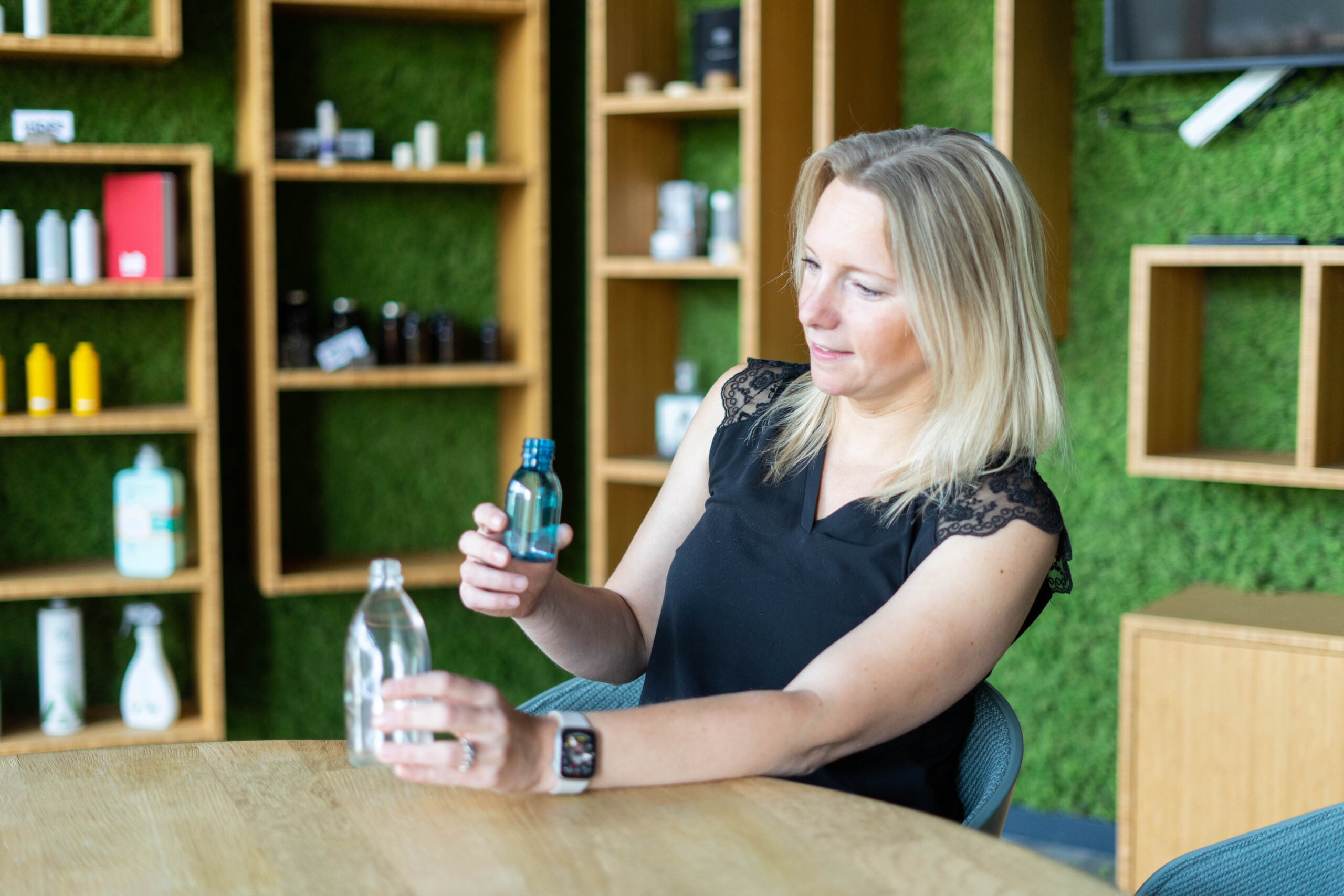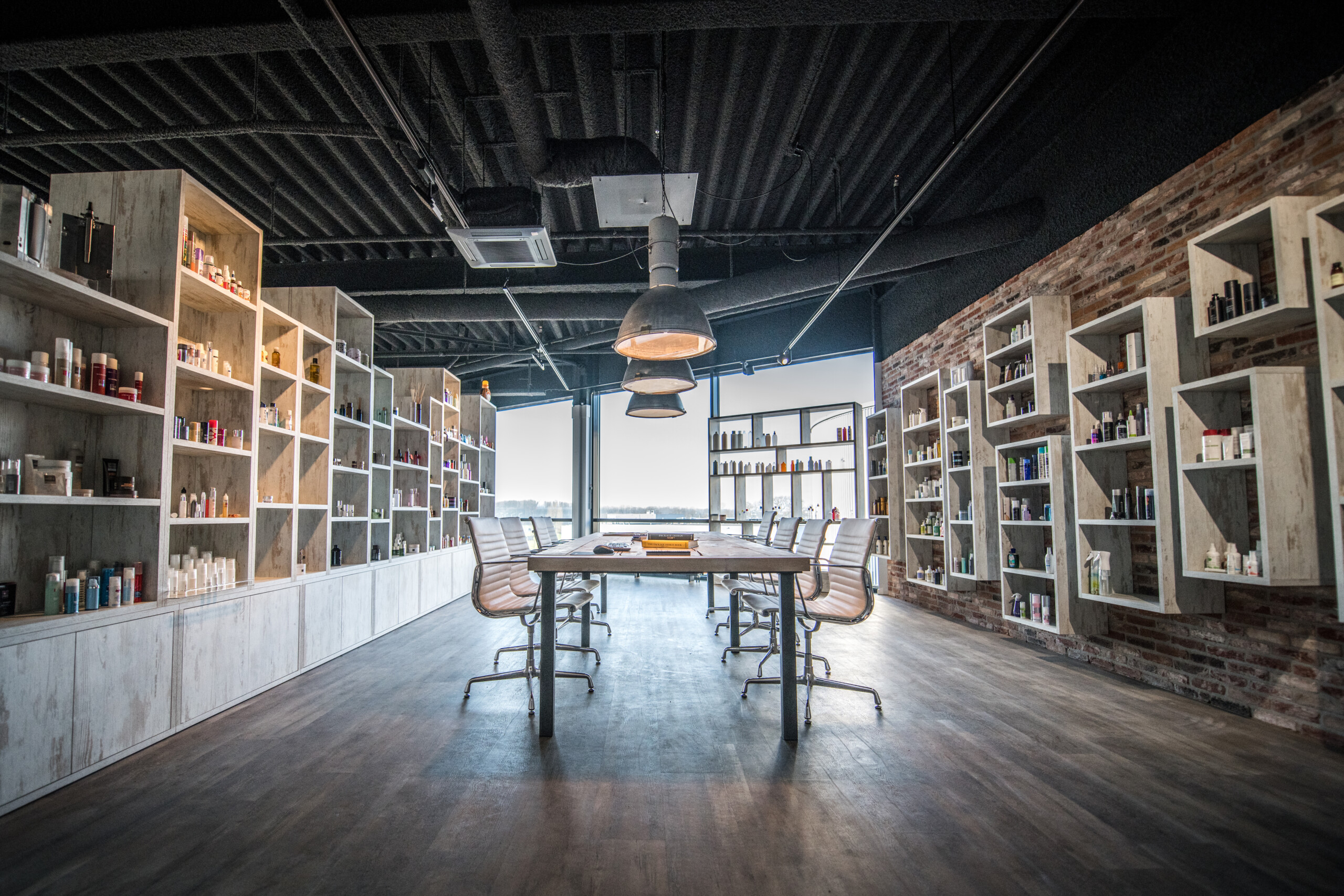Plastic is not so simple
The packaging industry wants to use less plastic. But simply saying: plastic is wrong, glass is right, is too black and white, they say at Berlin Packaging in Wijchen.
Plastic
is not so
simple
Source: de Gelderlander – Menno Pols
You could make a shampoo bottle out of glass. ‘’But if that bottle falls to pieces on your bathroom floor, you’re not happy’’, says Karin Vermaat, manager of Sustainability and Quality at Berlin Packaging. The company, located on the Bijsterhuizen industrial estate in Wijchen, is a distributor in packaging. ‘’There are an enormous amount of companies active in the packaging industry’’, Vermaat says. ‘’Often a bottle and a cap are not even made by the same company. If a company wants to create a packaged product, they will come to us. We then look for the best packaging for that product. We also design packaging ourselves’’.
Berlin Packaging is mainly active in the world of drugstore and cosmetic products, sports nutrition and food supplements and has brands such as Rituals, Holland & Barrett, Kruidvat and Etos as customers. Berlin Packaging is one of the larger companies in the Netherlands in that sector andemploys 112 people; 93 in Wijchen and 19 at a site in Houten. The turnover for 2021 was 150 million euros.In recent years, the packaging industry has not been in a favorable light. Packaging is often made of plastic and plastic is increasingly seen as a major environmental pollutant. There is particular concern about microplastics in the sea, which form the infamous plastic soup.
The industry is aware of this, Vermaat says. According to her, companies are increasingly asking for sustainable packaging. This is not just out of idealism. The industry is legally obliged to ensure the collection and recycling of packaging. To this end, it pays a contribution per kilo of packaging to the ‘Afvalfonds Verpakkingen foundation’. This foundation distributes the money among the municipalities, which collect the waste. So the less waste companies produce, the less they have to pay. In addition, consumers are asking more often for sustainable packaging.‘’
Source: de Gelderlander – Menno Pols
The packaging industry wants to use less plastic. but simply saying: plastic is wrong, glass is right, is too black and white, they say at Berlin Packaging in Wijchen.
You could make a shampoo bottle out of glass. ‘’But if that bottle falls to pieces on your bathroom floor, you’re not happy’’, says Karin Vermaat, manager of Sustainability and Quality at Berlin Packaging. The company, located on the Bijsterhuizen industrial estate in Wijchen, is a distributor in packaging. ‘’There are an enormous amount of companies active in the packaging industry’’, Vermaat says. ‘’Often a bottle and a cap are not even made by the same company. If a company wants to create a packaged product, they will come to us. We then look for the best packaging for that product. We also design packaging ourselves’’.
Berlin Packaging is mainly active in the world of drugstore and cosmetic products, sports nutrition and food supplements and has brands such as Rituals, Holland & Barrett, Kruidvat and Etos as customers. Berlin Packaging is one of the larger companies in the Netherlands in that sector andemploys 112 people; 93 in Wijchen and 19 at a site in Houten. The turnover for 2021 was 150 million euros.In recent years, the packaging industry has not been in a favorable light. Packaging is often made of plastic and plastic is increasingly seen as a major environmental pollutant. There is particular concern about microplastics in the sea, which form the infamous plastic soup.
The industry is aware of this, Vermaat says. According to her, companies are increasingly asking for sustainable packaging. This is not just out of idealism. The industry is legally obliged to ensure the collection and recycling of packaging. To this end, it pays a contribution per kilo of packaging to the ‘Afvalfonds Verpakkingen foundation’. This foundation distributes the money among the municipalities, which collect the waste. So the less waste companies produce, the less they have to pay. In addition, consumers are asking more often for sustainable packaging.‘’

Glass life cycle
Companies tend to replace plastic packaging with glass, Vermaat says. ‘’That has the image of being more sustainable. but that’s not always true. Glass also needs to be produced. This costs water and results in CO2 emissions. To produce plastic often less water is needed. You have to analyze the entire life cycle of a bottle or jar. And then glass is not necessarily more sustainable than plastic. Glass does have advantages. For example, it does not give off any flavor. That’s why we prefer to serve wine from a glass bottle.
”Of course, the plastics soup is the reality and it’s logical that plastic is in a bad light. The packaging world is really trying to use less new plastic. Demand for recycled PET (known from PET bottles, MP) has exploded. In 2016, we sold zero items made of recycled PET. In 2017, 25,.000 bottles and jars were involved; in 2021, over 26 million items. A thousand times more in four years.
‘’In addition, we design packaging that it is recyclable. Rituals now has plastic pots with replaceable inner pot. In this case you don’t have to throw away the outer jar. The packaging helps the product overcome time and distance. We make jars of thinner material nowadays, so we use less plastic. But the product must be well protected. It is our challenge to find a balance. As a company we are doing the best we can, but if people throw packaging on the street, that’s where the problem starts.’’
Whether the world can do without plastic? Vermaat doesn’t think so. ‘’It’s in so many products. And it continues to have advantages. It is light and strong. But we have to use it in the right way. We shouldn’t use it in unlimited quantities, but neither can we eliminate it completely.’’
Glass life cycle
Companies tend to replace plastic packaging with glass, Vermaat says. ‘’That has the image of being more sustainable. but that’s not always true. Glass also needs to be produced. This costs water and results in CO2 emissions. To produce plastic often less water is needed. You have to analyze the entire life cycle of a bottle or jar. And then glass is not necessarily more sustainable than plastic. Glass does have advantages. For example, it does not give off any flavor. That’s why we prefer to serve wine from a glass bottle.
”Of course, the plastics soup is the reality and it’s logical that plastic is in a bad light. The packaging world is really trying to use less new plastic. Demand for recycled PET (known from PET bottles, MP) has exploded. In 2016, we sold zero items made of recycled PET. In 2017, 25,.000 bottles and jars were involved; in 2021, over 26 million items. A thousand times more in four years.
‘’In addition, we design packaging that it is recyclable. Rituals now has plastic pots with replaceable inner pot. In this case you don’t have to throw away the outer jar. The packaging helps the product overcome time and distance. We make jars of thinner material nowadays, so we use less plastic. But the product must be well protected. It is our challenge to find a balance. As a company we are doing the best we can, but if people throw packaging on the street, that’s where the problem starts.’’
Whether the world can do without plastic? Vermaat doesn’t think so. ‘’It’s in so many products. And it continues to have advantages. It is light and strong. But we have to use it in the right way. We shouldn’t use it in unlimited quantities, but neither can we eliminate it completely.’’



